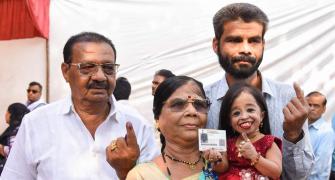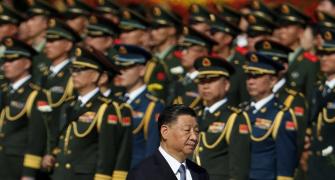How have international perceptions of India changed since the last summit?
Because of the dynamism of the economy, there is a very optimistic vie of the direction of the country. Since the last summit, India's international profile has increased. For example, at the Forum's 2006 annual meeting in Davos, the 'India Everywhere' campaign was launched. Following that we've had strong Indian participation in our other activities. We had co-chairs at the China summit in Beijing, and we've had a strong presence as well as co-chairs in the East Asia meetings.
But even beyond that the India Brand Equity Foundation organised a number of activities at the Hanover Trade Fair. I think public awareness about the India story - about its dynamism, its success, its growth aspirations- has been covered by the global media, and there's much more interest in what's happening in the political economy of India.
What is the significance of this year's theme?
All this awareness and growth creates new expectations. That's why we chose the theme of 'Meeting new expectations', which is a reflection of two things. One, the notion of sustaining 8-10 per cent growth per year into the future raises new expectations among the business community and also among vast pockets of the country that haven't had that robust growth, particularly in the rural areas.
These expectations need to be met, but that's going to require a lot of team work, lots of partnerships, and some innovation. Meeting new expectations is also relevant in the international context, because now you do have the world's attention, and many more foreign dignitaries and officials are calling on India for state visits.
CEOs and heads of major multinationals are obviously very interested in coming here. But when they come here, there is always a difference between what they hear about India abroad and the realities on the ground. So they also come with expectations.
For the international audience, what's important is the role of states, because in many of the things they want to do, they are going to find that the states have a huge role.
The Central government has liberalised the overall framework, but in terms of meeting the expectations of foreign investors, probably most of that burden will rest with the states, and hence 'meeting new expectations' is also linked to the role of the states.
We have five chief ministers coming, which I think is great. What I would like to encourage in the future is for more state ministers to continue to come and be part of this.
What's the Indian and foreign participation like, compared to last year?
We have record attendance in terms of interest from our business members and other stakeholders- over 600 delegates, of whom 250 are from overseas, representing 32 countries.
These are all either CEOs or board-level executives, which is a very positive sign. In terms of both Indian and foreign participation, we've reached a high point in the 22-year history of the summit.
This year one of the innovations is that the chief ministers will speak at the main sessions along with their Central government counterparts. We will also have a lunch around each of the chief ministers, so that we can understand the states better.
The Forum holds many more regional meetings now than it did earlier, so there is more competition for India. What is the effect of this competition?
It started really with our annual meeting in Davos. The difference is not in doing conferences, because almost all our activities cater to our members.
We are a foundation with a thousand member companies as well as another large group of stakeholders that include governments, media, international organisations, NGOs.
We bring them together around issues to shape the global, regional and industry agenda. That means identifying issues in these three areas that are of strategic importance.
So in each of the global-regional-industry agendas we look at what are the issues that require partnerships between governments, business and other stakeholders. To do that we need to meet and constantly connect throughout the year and around the world.
So we have at the beginning of the year our annual meeting at Davos, where we look at global issues in a macro setting. Between that and the next annual meeting we have regional meetings in East Asia, the Middle East, South Africa, China, India, and then they connect back into Davos.








